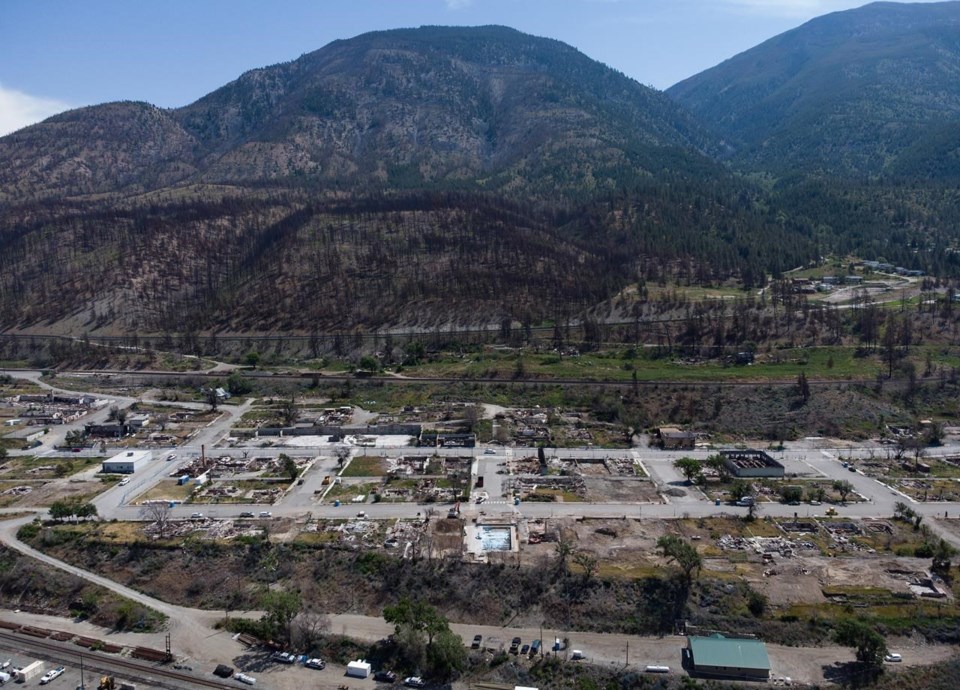VANCOUVER — The Village of Lytton, B.C., and the Thompson-Nicola Regional District are suing Canada's two national railways and Transport Canada, alleging they were negligent to let trains pass through the town during the deadly 2021 heat dome, before the community was razed by wildfire.
The notice of claim says a train passed through the village 18 minutes before the first report of a fire near the tracks that eventually destroyed 90 per cent of the town's buildings and scorched an additional 837 square kilometres of land.
In the claim filed in B.C. Supreme Court on June 16, lawyers allege Canadian National and Canadian Pacific railways continued to operate in late June 2021, despite record-setting heat and an extreme wildfire danger.
The claim says the railways failed to ensure the train's braking and other systems were safe, that they didn't use reasonable fire prevention methods and failed to watch for smoke or fire along the tracks.
It seeks general and special damages and costs related to everything from the emergency response to the investigation of the fire's cause and the rebuilding of the village.
None of the allegations have been proven in court and CN, CP and Transport Canada have not filed a response to the claim.
Representatives of CN and CP declined to comment on the case.
Transport Canada also declined comment on the legal action "out of respect for the judicial process."
"Transport Canada reiterates that the safety and security of Canada’s transportation network, including our railway system, remains of the utmost importance to the department," it said in the statement.
Deanna Campbell, general manager of corporate and legislative services for the district, said the action had been filed on its behalf by its insurer, the Municipal Insurance Association of BC, and it had yet to be served on the defendants.
The claim says the train that passed through the village around 4:30 p.m. on June 30 was owned or leased by CP, but operated by CN employees on CN tracks. It says the fire was first reported at 4:48 p.m. near tracks west of the city.
A Transportation Safety Board report released in October 2021 did not find evidence that railway operations sparked the Lytton wildfire.
But the claim says CN failed to prevent an "unreasonable risk that the train would ignite the surrounding combustibles … either by means of sparks or other incendiary materials."
It says CP ought to have known conditions were unsafe and failed to install or properly maintain a spark arrestor system and other mechanical means to prevent an unreasonable fire risk.
Transport Canada was accused of breaching its duty of care to the community by failing to order CP and CN to halt trains during the heat wave that saw temperatures in the village hit an all-time Canadian record of 49.6 C on June 29.
The claim does not put a figure on damages. The Insurance Bureau of Canada last year estimated insured losses of the destruction in Lytton at $102 million.
The 2021 heat dome was one of the most extreme weather events in recent Canadian history, and was blamed for hundreds of deaths in B.C.
This report by The Canadian Press was first published June 22, 2023.
The Canadian Press


